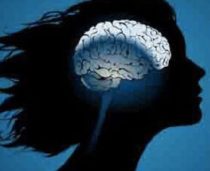Vincent Walsh wants to zap your brain. He’s at the forefront of neuroscientific research, with the use of deep brain stimulation to deal with depression.
Walsh, professor of human brain research at UCL, has been “designing new paradigms for brain stimulation” for twenty years. He’s experimenting with transcranial magnetic stimulation (TMS), a non-invasive form of neurostimulation. But he also thinks we must “draw back from the hype” around brain stimulation.
“We are carrying around with us the tools for learning,” he told the audience at WIRED Health. “And we’re missing low-tech opportunities to learn.”
Research shows that brain stimulation can enhance mathematical ability, symptoms of autism, ADHD, schizophrenia, reading abilities, and attention. Latest studies have also claimed that brain stimulation can help pilots land planes better, cause endurance cyclists to perform better, and even increase the “frequency of orgasms” (from 2.5 a week to 3.8 orgasms a week, apparently).
But many of these studies haven’t been replicated. And when it comes to learning, which Walsh has researched extensively, he thinks we’re complicating science and technology.
“We already understand the science of memory – we know how to learn, we know how to motivate people. If you want to learn something you have to make an effort, you have to make that effort repeatedly, and you have to have some downtime, which is why sleep is so important.”
So if we want to learn, should we apply electrodes to the brain? Walsh says no. “We should turn to 100 years of memory research and give people things to practice,” he said. “With a lot of these things, it’s not a brain stimulation problem – it’s a behavioral problem.”

















